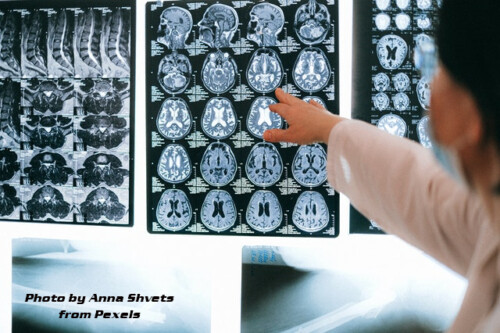The Crucial Role of Insight into Thought Patterns for Optimal Mental Health
Editorial Team
Achieving and maintaining good mental health involves a complex interplay of various factors, and one key aspect that significantly contributes to this is gaining insight into thought patterns. Thought patterns are the mental habits and automatic cognitive processes that shape our perceptions, emotions, and behaviors. Understanding these patterns provides individuals with a powerful tool to enhance self-awareness and foster positive mental well-being.
- Identification of Negative Thought Patterns: Insight into thought patterns allows individuals to identify and recognize negative or harmful cognitive habits. These may include patterns such as catastrophizing, overgeneralization, and black-and-white thinking. Recognizing these patterns is the first step towards breaking their hold on mental well-being.
- Connection between Thoughts, Feelings, and Behaviors: Understanding thought patterns helps individuals establish the intricate connections between thoughts, emotions, and behaviors. By recognizing how thoughts influence feelings and actions, individuals can gain greater control over their responses to various situations. This awareness is fundamental for promoting emotional regulation and healthy decision-making.
- Promotion of Self-Reflection: Insight into thought patterns encourages a habit of self-reflection. It allows individuals to pause and analyze their cognitive processes, providing an opportunity to challenge irrational thoughts and replace them with more balanced and constructive ones. This self-awareness becomes a powerful tool for personal growth and resilience.
- Empowerment and Agency: Knowing one’s thought patterns empowers individuals to take an active role in shaping their mental landscape. It fosters a sense of agency, enabling individuals to make intentional choices about how they interpret events, perceive themselves, and navigate challenges. This empowerment is a cornerstone of good mental health.
- Reduction of Cognitive Distortions: Many mental health issues are associated with cognitive distortions—irrational and biased thought patterns. Insight allows individuals to confront and challenge these distortions, promoting cognitive restructuring and the development of more realistic, positive, and adaptive thinking styles.
- Enhancement of Problem-Solving Skills: Insight into thought patterns enhances problem-solving skills. By understanding how one approaches challenges cognitively, individuals can develop more effective problem-solving strategies. This, in turn, contributes to a greater sense of control and resilience in the face of life’s difficulties.
- Prevention and Management of Mental Health Issues: Insight serves as a proactive tool in the prevention and management of mental health issues. Recognizing early signs of negative thought patterns enables individuals to seek timely support, engage in therapeutic interventions, and develop coping strategies before issues escalate.
In conclusion, the importance of insight into thought patterns for good mental health cannot be overstated. It forms the foundation for self-awareness, emotional regulation, and empowered decision-making. By understanding and actively shaping thought patterns, individuals can foster resilience, enhance well-being, and navigate life’s challenges with greater mental fortitude.

